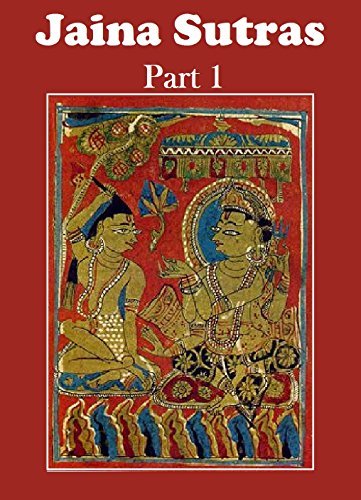Acaranga-sutra
by Hermann Jacobi | 1884 | 71,211 words | ISBN-10: 8120801237 | ISBN-13: 9788120801233
The English translation of the Acaranga Sutra, which represents the first the 12 Angas in Shevatambara Jainism. It is traditionally dated to the 5th-century BCE and consists of two parts containing lectures based on the teachings of Mahavira. Topics include: lifestyle of an ascetic: conduct, behavior, collecting alms, clothes, mode of walking and ...
Lecture 16
[Sixteenth lecture (uddesaya, uddeśaka): The liberation]
The creatures attain only a temporary residence (in one of the four states of being); hearing this supreme truth (i.e. the doctrine of the Tīrthakara’s) one should meditate upon it. The wise man should free himself from the family bonds; fearless should he give up acts and attachments. (1)
A mendicant, living thus[1], self-controlled towards the eternal (world of living beings), the matchless sage, who collects his alms, is insulted with words by the people assailing him, like an elephant in battle with arrows. (2)
Despised by such-like people, the wise man, with undisturbed mind, sustains their words and blows, as a rock is not shaken by the wind. (3) Disregarding (all calamities) he lives together with clever (monks, insensible) to pain and pleasure, not hurting the movable and immovable (beings), not killing, bearing all: so is described the great sage, a good Śramaṇa. (4)
As the lustre of a burning flame increases, so increase the austerity, wisdom, and glory of a steadfast sage who, with vanquished desires, meditates on the supreme place of virtue[2], though suffering pain[3]. (5)
The great vows which are called the place of peace, the great teachers, and the producers of disinterestedness have, in all quarters of the earth, been proclaimed by the infinite Jina, the knowing one[4], as light, illumining the three worlds, (repels) darkness. (6)
The unbound one, living amongst the bound (i.e. householders), should lead the life of a mendicant; unattached to women, he should speak with reverence. Not desiring this or the next world, the learned one is not measured by the qualities of love. (7)
The dirt (of sins) formerly committed by a thus liberated mendicant who walks in wisdom (and restraint), who is constant, and bears pain, vanishes as the dirt covering silver (is removed) by fire. (8)
He lives, forsooth, in accordance with wisdom (and restraint), and walks free from desire, and with conquered sensuality. As a snake casts off its old skin, so is the Brāhmaṇa freed from the bed of pain. (9)
As they call the great ocean a boundless flood of water, difficult to traverse with the arms (alone), so should the learned one know (and renounce) it (the saṃsāra): that sage is called ‘Maker of the end.’ (10)
Here amongst men bondage and deliverance have been declared; he who, according to that doctrine (of the church), knows bondage and deliverance: that sage is called ‘Maker of the end.’ (11) He for whom there is no bondage whatever in this world, and besides in the two (other continents, or heaven and hell), is indeed a (monk needing) no support and no standing place; he has quitted the path of births. (12)
End of the Sixteenth Lecture, called the Liberation.
End of the Second Book.
End of the Ācārāṅga Sūtra.
Footnotes and references:
[1]:
Tahāgaya, i.e. tathāgata.
[2]:
Dhammapadaṃ.
[3]:
Vidūṇate, which I take to be the genitive of the present participle corresponding to vidunvataḥ. The commentators divide the word into vidū ṇate = vidvān nataḥ, which gives no sense.
[4]:
Nātiṇā in the original. I would prefer to translate it jñatṛ, the name of the clan to which Nātaputta belonged.
